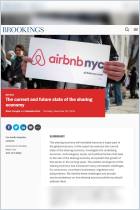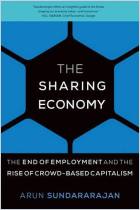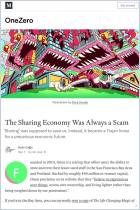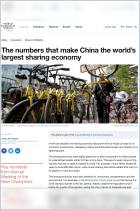
Circular Economy Innovation & New Business Models Dialogue
Young Global Leaders Sharing Economy Dialogue Position Paper 2013
Read or listen offline
Recommendation
The sharing economy is a $350 billion sensation that reflects new levels of consumer empowerment. From Airbnb to Zipcar, with stops at CouchSurfing and TaskRabbit along the way, firms in the collaborative economy encompass a wide variety of niches and business models. This intriguing report from the World Economic Forum nicely outlines the rise of the sharing economy and sings its praises but also displays a distinct lack of skepticism. For instance, is running errands for $15,000 a year as a TaskRabbit really a way to participate in an advanced, collaborative economy, or is it a ticket to near poverty? Despite some unanswered questions, getAbstract recommends this study to anyone interested in how the sharing economy could change the way consumers and businesses interact.
Take-Aways
About the Author
April Rinne is chief strategy officer at Collaborative Lab, a consultancy specializing in the sharing economy.





















Comment on this summary or Comenzar discusión